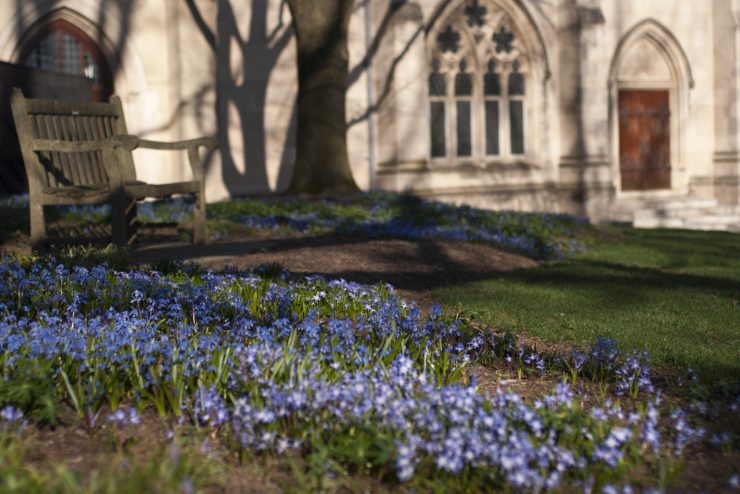Things That Shall Endure

Mark 13:1-19
As he came out of the temple, one of his disciples said to him, “Look, Teacher, what large stones and what large buildings!” Then Jesus asked him, “Do you see these great buildings? Not one stone will be left here upon another; all will be thrown down. “When he was sitting on the Mount of Olives opposite the temple, Peter, James, John, and Andrew asked him privately, “Tell us, when will this be, and what will be the sign that all these things are about to be accomplished?” Then Jesus began to say to them, “Beware that no one leads you astray. Many will come in my name and say, ‘I am he!’ and they will lead many astray. When you hear of wars and rumors of wars, do not be alarmed; this must take place, but the end is still to come. For nation will rise against nation, and kingdom against kingdom; there will be earthquakes in various places; there will be famines. This is but the beginning of the birth pangs. “As for yourselves, beware; for they will hand you over to councils; and you will be beaten in synagogues; and you will stand before governors and kings because of me, as a testimony to them. And the good news must first be proclaimed to all nations. When they bring you to trial and hand you over, do not worry beforehand about what you are to say; but say whatever is given you at that time, for it is not you who speak, but the Holy Spirit. Brother will betray brother to death, and a father his child, and children will rise against parents and have them put to death; and you will be hated by all because of my name. But the one who endures to the end will be saved. “But when you see the desolating sacrilege set up where it ought not to be (let the reader understand), then those in Judea must flee to the mountains; the one on the housetop must not go down or enter the house to take anything away; the one in the field must not turn back to get a coat. Woe to those who are pregnant and to those who are nursing infants in those days! Pray that it may not be in winter. For in those days there will be suffering, such as has not been from the beginning of the creation that God created until now, no, and never will be.
In a brief exchange with an unnamed disciple in these opening verses of Mark 13, Jesus calls our attention to the impermanence of all things of this world. The disciple comments on the grandeur of the Temple, and Jesus responds, ‘do you see these great buildings? Not one stone will be left here upon another; all will be thrown down’ (Mark 13:2). Not even the Temple, the magnificent structure that stood at the heart of Jewish ritual and religious life, would survive. All things of this world will pass away—the wealth, status, and material things we so desperately seek, even the most loving and life-giving relationships that sustain us and bring us joy.
This is surely one of the most challenging lessons we humans must learn and take to heart. In the face of such impermanence, we often choose to resist and strive ever harder to accumulate and control in an ultimately fruitless effort to overcome this reality of human existence. There is, however, another option before us. We can choose to acknowledge this reality and begin to hold the things of this world a bit more lightly, recognizing that everything is gift and nothing a guarantee. Gratitude naturally follows as we come to know deep within ourselves that all things come from God, who alone endures through all things. It is in God that we place our trust and our hope, knowing that while the things of this world pass away the mercy and love of God endure forever.
In faith,
Patrick+
Grant us, Lord, not to be anxious about earthly things, but to love things heavenly; and even now, while we are placed among things that are passing away, to hold fast to those that shall endure; through Jesus Christ our Lord, who lives and reigns with you and the Holy Spirit, one God, for ever and ever. Amen. (The Book of Common Prayer, p. 234)